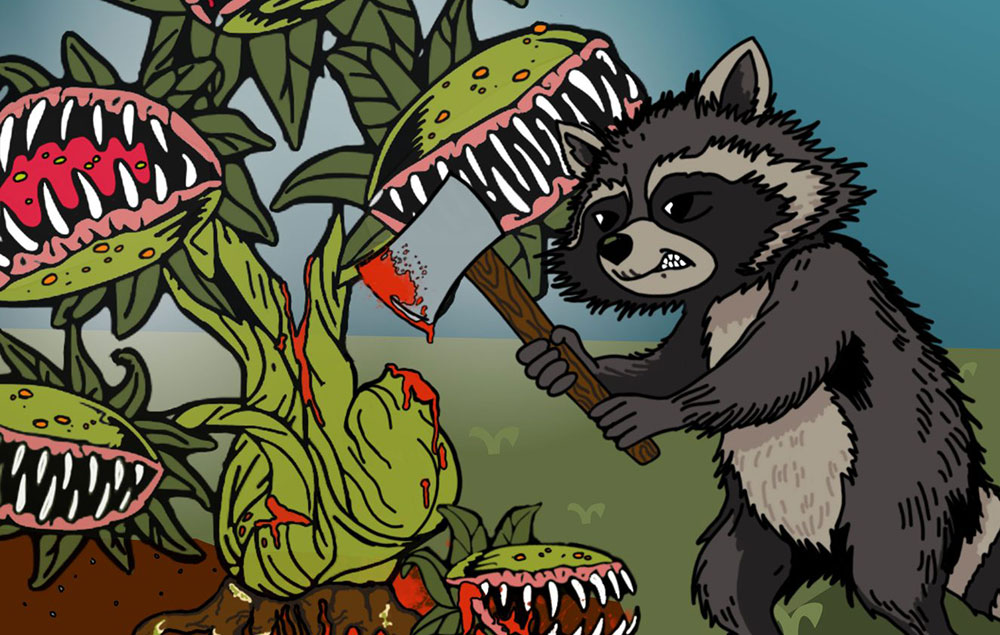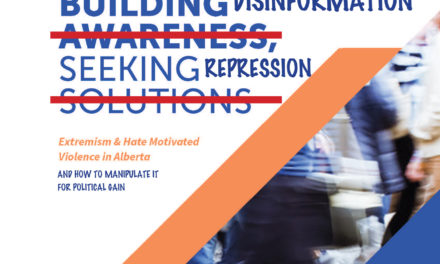(This text was written in spring 2025 for the Convergence des luttes anticapitalistes publication Coup de grâce.)
Since its creation, the Montréal Antifasciste collective has been sounding the alarm about the growing influence of the far right in Québec, whether in its national-populist or neo-fascist forms. The collective’s main focus has been to combat this phenomenon with counterinformation, popular mobilizations, and community self-defence.
In 2025, with the exception of extremely marginal formations that are close to fanatical in nature (e.g., the Parti nationaliste chrétien), the far right in Québec lacks the sort of vehicles that one sees in the US with the MAGA movement (which has hijacked the Republican Party) or in France with the Rassemblement national and Reconquête parties. What’s more, apart from ethno-nationalist projects like Nouvelle Alliance (whose aim is to infiltrate pro-independence parties), there is currently no structured far-right organization with any traction like those that exist elsewhere and has existed here in the past.
Nonetheless, it would be wrong to think that the far right is absent from Québec’s political and cultural landscape. On the contrary, it has deep roots here that have never been eradicated, and it could re-emerge at any moment.
Today, the far right is primarily active in the struggle for cultural hegemony, notably on online spaces, in podcasts, and on social media in general, but also on “trash” talk radio and among commentators in some traditional media, resulting in influence that is increasingly being felt in institutional politics, with certain elements of the discourse finding their way into the mouths of opportunistic politicians like François Legault (Coalition Avenir Québec), whose party is exploiting identity-based anxieties in the run-up to the next election, or Pierre Saint-Paul Plamondon (Parti Québécois), who competes aggressively on the same terrain by adopting the obsessions of patent ideologues like Mathieu Bock-Côté. As for Éric Duhaime (Parti conservateur du Québec), he routinely exploits the reactionary impulses of his base to advance his project of dismantling the state’s regulatory and social functions (somewhat along the lines of “Project 2025” in the US).
The common denominator of these politicians is what has come to be known as “anti-woke,” which in reality is nothing more than a violent cultural backlash against anti-racist and feminist movements, equity, equality and inclusion measures, and the left and progressive values in general. Whatever one thinks of the “woke” concept, this anti-progressivism is an undeniable sign of the cultural and political influence of the far right in Québec. This backlash is having a concrete effect. There’s no doubt, for example, that the masculinist rhetoric that has proliferated on platforms like TikTok for several years is partly responsible for the resurgence of intolerance towards feminism and sexual and gender minorities.
The increasing influence of the far right is diffuse, presenting a considerable challenge for the anti-fascist movement, which must adapt to these new realities and move beyond its tried-and-true forms of resistance. As we see it, the main way forward lies in broadening the scope of anti-fascist struggle beyond the radical left to form a genuine grassroots movement, present and active in all spheres of society. Here are a few suggestions for doing that.
- Call it what it is: the prevailing anti-progressivism, identity-based rhetoric, and scapegoating (of migrants, Muslims, trans communities, etc.) are all undeniable signs of the increasing influence of the far right, which only serves to encourage the emergence of more violent manifestations—any claim to the contrary today ends in gaslighting; on the other hand, it’s important to be precise and avoid reductionist conflation, which generally proves to be counterproductive.
- Be informed: develop the intellectual skills necessary to recognize speeches and influencers that explicitly promote the resurgence of the far right, as well as dog whistles and more subtle elements; there are a multitude of sources for refining our knowledge and our antifascist reflexes.
- Stop arguing with fascists and the anti-woke: it’s a complete waste of time and energy that would be better invested in building effective resistance; you don’t debate fascism, you fight it.
- Resist far-right rhetoric and those who use it: ideally, using our own means and on our own terms, if possible, but, like it or not, we have to wage the war where it’s unfolding, and that means taking over media spaces and forms of communication with cultural and political influence and, of course, inventing new means, if necessary.
- Resist misinformation and post-fact propaganda: words have meaning, and that meaning is important; confusion and the disintegration of meaning can only benefit the far right.
- Always be vigilant: listen to speeches and pay attention to public demonstrations, of course, but also (for those sufficiently motivated) infiltrate the digital spaces where far-right currents converge more covertly (Telegram, Discord, TikTok, etc.) to pinpoint trends and identify key players; share this information with organized anti-fascist groups to draw up profiles and build a strategy for using this information (or not).
- Resist the allure of nationalism and liberalism: maintaining the bourgeois order and the colonial status quo is not a solution; in fact, the capitalist/colonial/ecocidal regime fosters the increasing strength of the far right and fascism when it is in crisis, so the anti-fascist struggle must be conceived of and promoted as a fundamental movement against the far right and against the dominant capitalist order that facilitates its cyclical re-emergence.
- Strengthen community spirit: in particular but not only self-defence skills; never forget that mutual aid and solidarity are, and always will be, our most powerful weapons against the ambitions of our oppressors.
- Mobilize: increase your actions and demonstrations, including strikes and blockades, if and when necessary; form anti-fascist affinity groups and build popular networks of anti-fascist resistance on a local level, as well as more far-reaching federations, drawing inspiration from historical examples like Anti-Racist Action, Action antifasciste, and other models.
- Never lose hope.
¡No pasarán!





